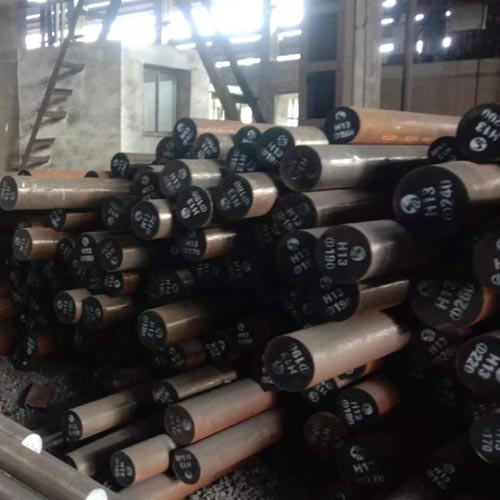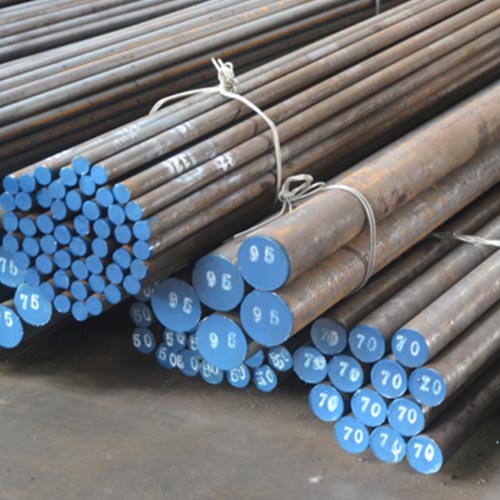Introduction

Alloy tool steel is a cornerstone material in modern industrial applications, renowned for its exceptional mechanical properties that cater to demanding conditions. This blog delves into the multifaceted benefits of tool steel across various sectors, exploring its composition, diverse types, specific applications, and advantages.
Properties of Alloy Tool Steel
Alloy tool steels are distinguished by their unique combination of properties, making them indispensable in heavy-duty applications:
- Hardness: One of the hallmark characteristics of alloy tool steels is their high hardness, achieved through specific alloying elements such as chromium, tungsten, and vanadium. This property enables these steels to retain their cutting edge and withstand abrasion during prolonged use in cutting tools and dies.
- Toughness: Despite their hardness, tool steels exhibit remarkable toughness, crucial for applications where materials are subjected to impact and shock loading. This toughness prevents fractures and ensures durability under challenging operational conditions.
- Wear Resistance: The ability to resist wear and maintain sharpness over extended periods is another critical attribute of tool steels. This property is essential in applications such as metal forming dies, where sustained performance and dimensional accuracy are paramount.
Types of Alloy Tool Steel
Alloy tool steels are categorized into several types, each tailored to meet specific industrial requirements and operational environments:
| Type | Composition | Typical Applications |
|---|---|---|
| A2 Tool Steel | 1.00% C, 5.00% Cr, 0.30% Mn, 1.10% Si | Blanking dies, forming tools, punches |
| D2 Tool Steel | 1.55% C, 12.00% Cr, 0.60% Mn, 0.90% V | Cold forming tools, punches, woodworking tools |
| M2 High-Speed Steel | 0.95% C, 4.00% Cr, 6.00% W, 5.00% Mo | Cutting tools, drills, taps, reamers |
| S7 Shock-Resisting Steel | 0.55% C, 3.25% Cr, 0.75% Mn, 1.50% Si | Impact tools, hammers, chisels |
Each type offers unique benefits such as enhanced hardness, improved wear resistance, or superior machinability, catering to specific industrial applications ranging from automotive manufacturing to aerospace components.
Applications of Alloy Tool Steel
Alloy tool steels find widespread use across diverse industries due to their exceptional properties:
- Automotive: Used in the production of dies and molds for sheet metal stamping, cutting tools for machining engine components, and high-wear-resistant parts like gears and bearings.
- Aerospace: Crucial for manufacturing precision cutting tools, drills, and reamers that withstand extreme temperatures and mechanical stress encountered in aircraft manufacturing and maintenance.
- Manufacturing: Essential in injection molding and die casting applications where precision, durability, and resistance to wear and deformation are critical for maintaining production efficiency and quality.
- Construction: Utilized in the fabrication of high-performance cutting tools, saw blades, and drilling equipment for construction projects that demand robust and reliable materials.
Advantages of Alloy Tool Steel

The advantages of alloy tool steel underscore its position as a preferred material in industrial settings:
- Durability: Alloy tool steels exhibit exceptional durability, providing long-term performance under rigorous operational conditions.
- Versatility: Available in various compositions, tool steels offer versatility in design and application, enabling tailored solutions for specific industrial requirements.
- Machinability: These steels are machinable into intricate shapes and profiles, facilitating the production of custom tooling and components with high precision and reliability.
Conclusion
Alloy tool steel stands out as a cornerstone material in modern industrial applications, offering a blend of hardness, toughness, and wear resistance that is unmatched by conventional steels. Understanding the diverse types, properties, and applications of tool steels enables industries to leverage these materials effectively to enhance productivity, efficiency, and product quality.
FAQ
Q: What are the main benefits of alloy tool steel?
A:Alloy tool steels offer high hardness, excellent toughness, and superior wear resistance, making them ideal for demanding industrial applications where durability and precision are paramount.
Q: How do you choose the right type of tool steel?
A:The selection of tool steel depends on factors such as the specific application requirements, desired hardness, and environmental conditions. Consulting with metallurgical experts and considering performance data can aid in choosing the optimal alloy for a particular application.
Q: Are there limitations to using alloy tool steel?
A:While highly durable and versatile, alloy tool steels can be more expensive than conventional steels and require proper maintenance to prevent corrosion and maintain performance over time.
